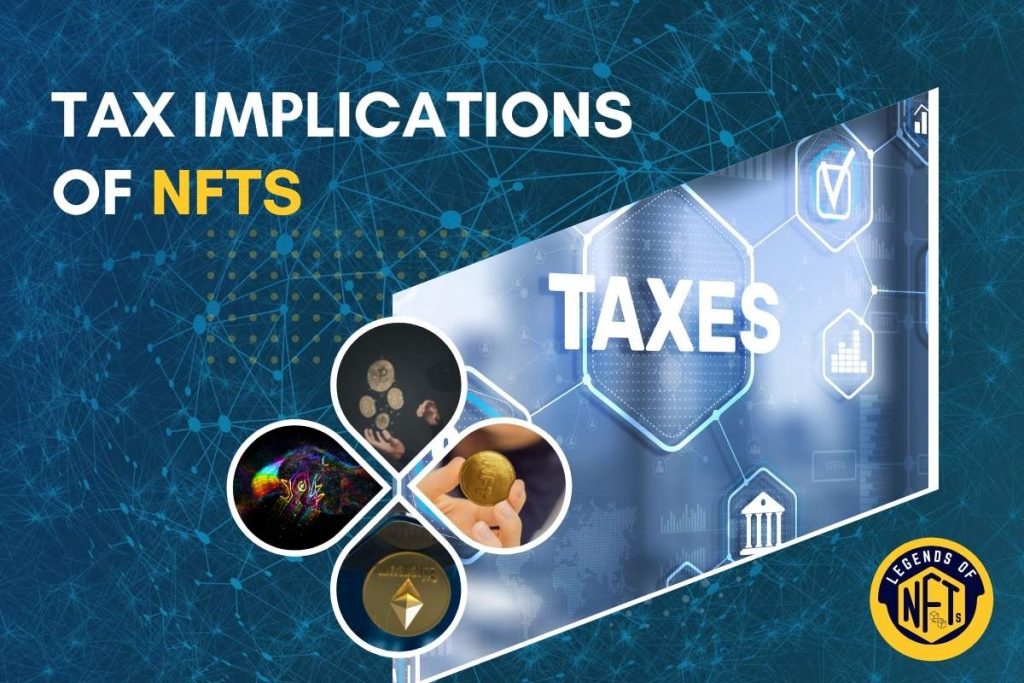With the rise in popularity of Non-Fungible Tokens (NFTs), there has been a corresponding increase in interest in the tax implications of investing in these digital assets. In this article, we will explore some of the key tax considerations for NFT investors, including when capital gains and losses are incurred, as well as how to report NFT investments on your tax return. So if you’re thinking about dipping your toes into the world of NFTs, read on for some important advice!
Tax on NFTs
Like any other property, your gain or loss on the sale of an NFT is determined by subtracting your cost (what you paid for the NFT) from the sales price. So, if you buy an NFT for $1,000 and sell it later for $2,000, you have a $1,000 gain. On the other hand, if you sell the NFT for $500, you have a $500 loss.
Calculation of Tax Implications
It’s important to keep track of your cost basis for each NFT you sell, as it can have a big impact on your taxes. For example, let’s say you buy an NFT for $1,000 and then sell it a year later for $2,000. If you held the NFT for less than a year, your gain would be considered a short-term capital gain and would be taxed at your ordinary-income tax rate. But if you held the NFT for more than a year, your gain would be considered a long-term capital gain and would be taxed at a lower rate.
Of course, you’re not always going to make a profit on the sale of an NFT. If you sell an NFT for less than you paid for it, you’ll have a capital loss. Capital losses can be used to offset capital gains, which can lower your overall tax bill.
Tax Rate
The tax rate on capital gains depends on how long you held the asset and your income. For most people, the long-term capital gains tax rate is 15%, 20%, or 0%.
If you have a gain from selling an NFT that you held for less than a year, it will be taxed as a short-term capital gain at your ordinary-income tax rate, which could be as high as 37%.
Again, it’s always best to consult with a tax professional to determine how the sale of an NFT will impact your specific tax situation.
Non-Deductibility of Expenses
Another important thing to keep in mind is that, unlike with other investments, you cannot deduct any expenses related to buying or selling NFTs. This includes things like broker’s fees, transaction costs, and marketing costs.
This means that, even if you incur losses from selling NFTs, you won’t be able to deduct those losses from your other income. So, if you have a $1,000 loss from selling NFTs and a $5,000 gain from stocks, your net capital gain would be $4,000 ($5,000 – $1,000).
Report NFT Investments on Tax Return
When it comes to NFTs, there are two types of income that you may need to report on your tax return: capital gains and ordinary income. Capital gains occur when you sell an NFT for more than you paid for it. Ordinary income, on the other hand, is generated from things like NFT royalties or fees.
Need of Professional Tax Consultants
Due to the complex and ever-changing nature of tax laws, it’s always best to consult with a tax professional before buying or selling any NFTs. All situations are not the same and a tax professional can help you understand how the sale/purchase of an NFT will impact your specific tax situation and advise you on the best way to minimize your taxes.
Some modern law agencies such as Fortis Law Partners have well-trained experts that provide consultancies related to NFT taxation among others.
Conclusion
NFTs have become a popular way to invest in digital assets, but it’s important to be aware of the potential tax implications before you buy or sell them. NFTs are considered property for tax purposes, which means they are subject to capital gains tax. Additionally, any income you earn from NFTs will be subject to regular income tax rates. Be sure to keep track of your cost basis for each NFT so you can accurately calculate your gain or loss, and consult with a tax professional if you have any questions about how the sale of an NFT will impact your taxes.
Disclaimer:
This article is intended to provide general information and should not be considered tax or financial advice. You should always consult with a qualified tax or financial advisor to discuss your specific situation.





